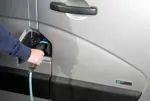A growing new car market could have a negative effect on car values and leave fleets and company car drivers facing a rise in leasing rates.
The warning comes just days after it was announced that the number of new cars expected to be sold in 2013 would be 7.8 percentage points higher than that originally predicted.
The Society of Motor Manufacturers and Traders (SMMT) estimated in January that new car registrations would reach just over two million units in 2013, a 0.6% rise on the previous year.
The forecast mirrored the level of growth predicted in the wider economy and took account of a dip in sales in 2011 compared to 2010.
However, on the back of strong sales, it reassessed the market four months later and revised its full-year forecast up to 2.1 million units – a 3% increase on 2012 volumes.
Now, the trade body has significantly raised its forecast again, predicting sales will reach 2.16m units, an 8.4% increase on the number of cars registered in 2012.
It made the announcement on the back of figures that showed total new car registrations had hit more than 1.3m already this year, with fleet and business registrations accounting for 53% of the market (696,837 units), an increase of almost 6% on the 661,354 units registered in the same period last year.
Healthy car market bad for fleets
A healthy new car market is good news for carmakers, but could prove to be bad news for the fleet industry if it overheats, especially if the market returns to pre-recession levels of 2.58m units.
A year-on-year growth rate of just half of the 8.4% predicted for 2013 would result in new car sales hitting that figure by 2018.
Ben Newton, head of pricing research at Lex Autolease, said: “Today’s new car registrations are tomorrow’s used vehicle supply. Naturally, an increase in supply puts downward pressure on residual values, which on its own will push up leasing rates as the depreciation element of a rental will increase.”
Poor economic growth in Europe has resulted in dire new car sales on the continent, with registrations at their lowest for 20 years. This dip in demand has coincided with a significant rise in discounting among manufacturers and retailers in the UK.
Brokers target SMEs
SMEs are being targeted by brokers offering tempting deals for cars on contract hire and finance lease agreements.
Meanwhile, the retail sector is being fuelled further by a growth in personal contract purchase (PCP) agreements, where a consumer chooses the car, the deposit, how long they want the contract to run for and the mileage they intend to do.
They then pay a fixed amount for the term of the agreement. At the end of the contract, they have a choice to either buy the car outright for an agreed lump sum or hand the vehicle back to the lender and walk away with no obligation.
Its popularity will also put pressure on used car values, predicts Rupert Pontin, chief car editor of pricing guide Glass’s. He said: “With the increase in PCP deals, I would expect to see a dent in residual values in two to three years’ time.
“If they try to sell a lot of the same model through the same PCP deal, they will all come back at the same time, which will have a big impact.
“If the deals are sold across various vehicle ranges, it’s more manageable.”
Manipulating the market
Market growth has led to manufacturers being accused of manipulating the market.
Roddy Graham, commercial director of Leasedrive, told Fleet News: “The UK market is around 1.9m units. If it goes above 2m it is being forced.”
As a result, he expects a realignment of residual values towards the end of 2013. “There is no doubt in my mind market correction is going to come as a bit of a jolt,” he said.
“We’re not going to see it at the same scale as in previous years, as manufacturers are much better at controlling the market. But if it goes up to 2.6m units by 2018 then I would worry enormously, because last time it was a disaster.”
Lex Autolease expects vehicle supply to increase for the remainder of this year and into 2014. “In the long term, this rise in registrations will cause downward pressure on residual values,” said Newton.
And, if new car registrations were to reach a figure of 2.6m – probably unlikely but they were predicted to hit 2.4m by 2018 by Jonathon Poskitt, of LMC – because manufacturers were using traditional short-cycle routes of daily rental and pre-registration, LeasePlan suggests RVs could be hit hard.
Market risk manager Leigh Merry said: “The effect may be residual values between 3-5% lower than currently forecast.”
For more on how the growth in new car sales could affect the fleet industry, read a blog by Denis Keenan, managing director of Kee Resources.



















Rob Chisholm, Applewood Vehicle Finance Ltd - 29/08/2013 11:28
Is this a ruse simply to try and increase rentals/margins? As years go by there will be fewer used vehicles available for sale simply because the complexity of vehicles and the more stringent MOT Tests will make more and more cars uneconomical to repair. It will become the norm before too long for vehicles more than 7 years old to be effectively beyond worth taking a risk on for the average used car buyer. What those who can only afford a vehicle below £5,000 will be able to buy is anyone's guess.